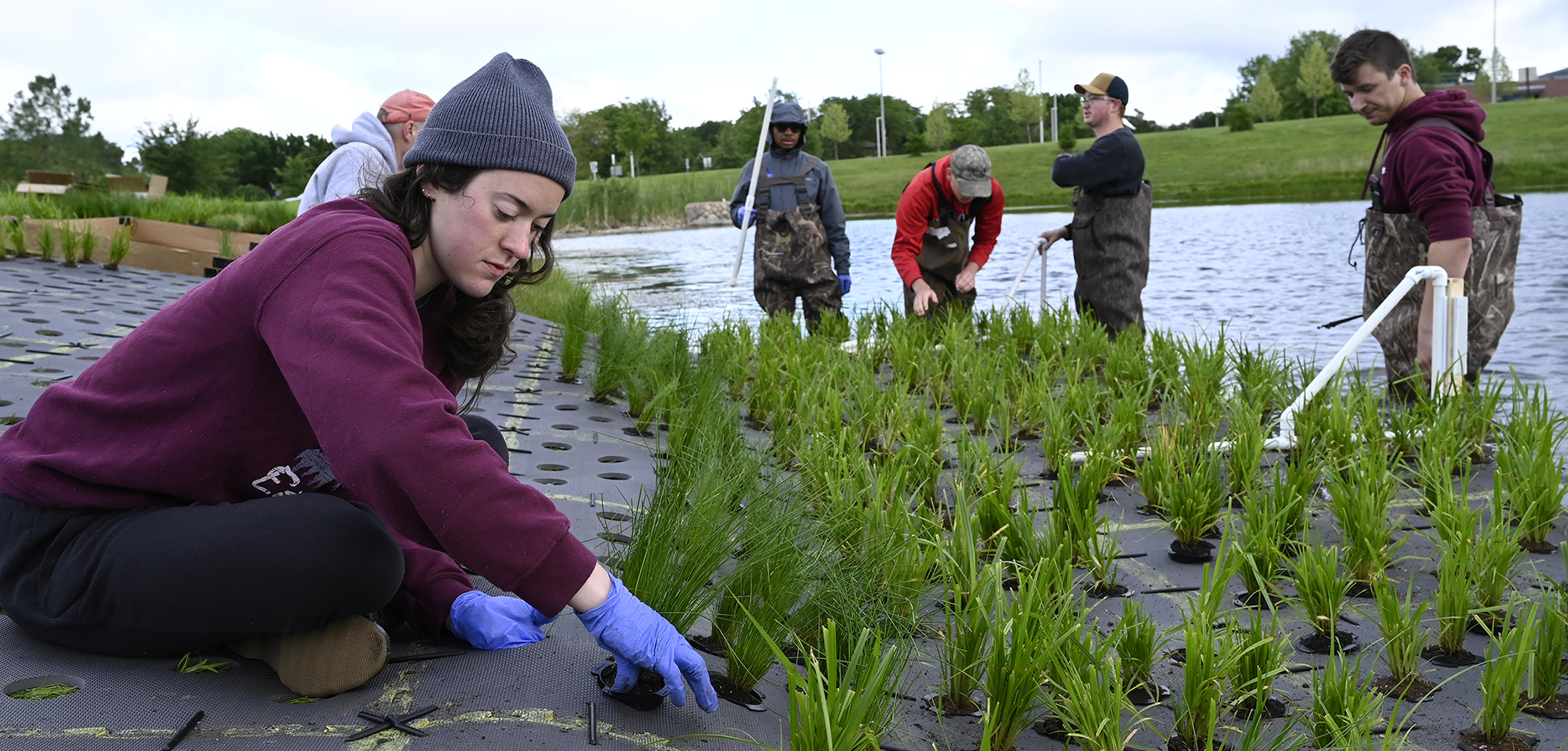![]()
Ecological and Environmental Engineering
Protecting and restoring the ecosystems and environment which all biological systems depend on is a rewarding area of study with many career options. An Ecological and Environmental Engineer (EEE) is someone who uses mathematical and scientific tools while considering both ecological and engineering aspects. As a student in the EEE emphasis area (as part of a major in Biological Systems Engineering), you will learn about how ecological and environmental engineering plays a role in sustaining our valuable natural heritage.
Throughout the program, students learn to use biological systems as cleaning systems, namely bio-filters and constructed wetlands, for the purification of air and water. Coursework topics include ecological engineering; nonpoint source pollution; restoring streams, lakes, and wetlands; stormwater bioretention; and animal waste management.
This is a fantastic career choice for people who like to work outside and experience the hands-on results of their ideas and concepts. EEEs study and participate in research on subject matter that makes a difference for ecosystems and the quality of life we have come to value. EEEs work in several fields including consulting, industrial, nonprofit, regulatory and municipal sectors.
A related area of study is available in Civil Engineering. Students in this Environmental Engineering path are focused on the built environment (water treatment, wastewater treatment, stormwater control, air pollution and hazardous waste), while EEEs with a major in Biological Systems Engineering are more focused on the natural environment. Students in either major are encouraged to pursue a minor in Environmental Engineering, especially if they are interested in pursuing licensure as a Professional Engineer in Environmental Engineering.
Recommended Classes
Introduction to principles of ecological engineering, including ecosystems ecology, river restoration, constructed wetlands, green infrastructure stormwater management, and environmental restoration. Ecological design of water and land protection practices.
Introduction to soil and water resources and the engineering processes used to analyze watersheds. Soil water relations, precipitation, runoff, erosion, wetland and groundwater hydrology, and water quality. Geographic information system utilized to develop maps and analyze watershed characteristics.
Characterization of wastes from animal production. Specification and design of collection, transport, storage, treatment, and land application systems. Air and water pollution, regulatory and management aspects.
Analytical and design consideration of evapotranspiration, soil moisture, and water movement as related to irrigation and drainage systems; analysis and design of components of irrigation and drainage systems including water supplies, pumping plants, sprinkler systems, and center pivots.
Identification, characterization, and assessment of nonpoint source pollutants; transport mechanisms and remediation technologies; design methodologies and case studies.
Design of unit operations and processes associated with drinking water and wastewater treatment facilities.
Application of engineering principles to the movement of groundwater. Analysis and design of wells, well fields, and artificial recharge. Analysis of pollutant movement.
For more information, visit the Biological Systems Engineering (BSEN) section of the Undergraduate Catalog.
After Graduation
After completing a B.S. in Biological Systems Engineering with an emphasis in Ecological and Environmental Engineering, students go on to have fulfilling careers in a variety of directions. Many graduates find work with companies and organizations that provide consulting services for cities and the government. Other students will be hired by industrial companies to help design solutions for limiting pollution and restoring ecosystems. There are also students who choose to continue with their education and pursue advanced degrees.
Emphasis Areas

Biomedical Engineering
Medical Imaging, surgical tool design, tissue engineering, prosthetic design, and rehabilitation engineering are just a few of the emerging fields in this specialty.

Ecological and Environmental Engineering
Learn about nonpoint source pollution, restoring streams, lakes, and wetlands, and how ecological engineering plays a role in sustaining our environment.

Food and Bioprocess Engineering
Discover new possibilities for bioproducts and bioenergy: from biodiesel and ethanol to new uses for grain by-products as well as improving food safety and quality.
